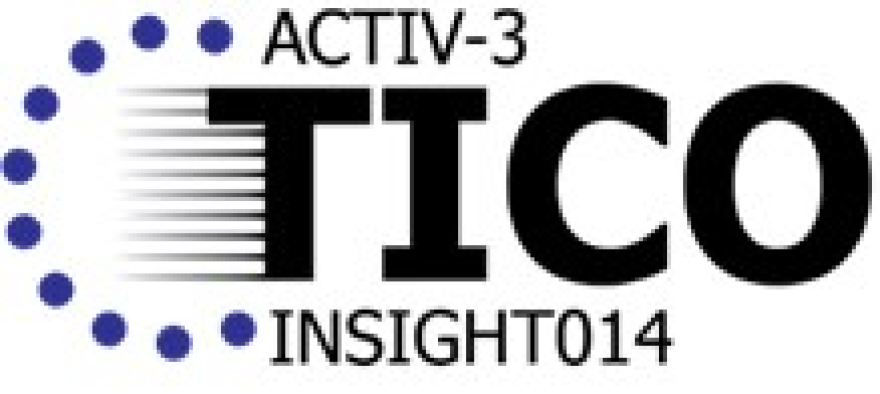The TICO master protocol responded to the urgent need to accelerate the development of safe, efficacious, novel antivirals for hospitalized COVID-19 patients. Through a successful collaboration of clinical trial networks, TICO has been rapidly and successfully designed and implemented globally. TICO is an efficient, flexible, rigorous MAMS platform master protocol that allows for concurrent safety and efficacy evaluation of multiple novel antiviral agents, with agents able to enter at different times.
TICO (Therapeutics for Inpatients with COVID-19) is a master protocol that evaluated the safety and efficacy of multiple investigational agents aimed at modifying the host immune response to severe acute respiratory syndrome coronavirus 2 (SARS-CoV-2) infection, or directly enhancing viral control in order to limit disease progression. Trials within this protocol were adaptive, randomized, blinded and initially placebo-controlled. Participants received standard of care (SOC) treatment as part of this protocol.
As of 8 August 2021, the TICO protocol has been amended three times. Each protocol version adds a new agent or agents. V1.0 included the Lilly neutralizing monoclonal antibody LY-CoV555. V2.0 of the protocol included the GSK/Vir neutralizing monoclonal antibody Vir-7831 and the Brii Bioscience neutralizing monoclonal antibodies Brii. The TICO study allows for multiple agents to be studied concurrently and for agents to enter the study at different time-points. In the theoretical scenario, Agent (a) is the only agent that is available for randomization at the beginning of the study.
Later, Agent (b) and Agent (c) enter the study, and new participants are able to be randomized to all three agents (and placebo). Agent (a) completes recruitment in Disease Stratum 1, and after the initial futility assessment by the independent DSMB (using the day 5 ordinal outcome), the agent is approved to also include those in Disease Stratum 2 (i.e. those with end organ disease, including requirements for invasive mechanical ventilation or ECMO). Agent (b) and Agent (c), entering the study at the same time, but after Agent A, both progress to the initial futility assessment. However, only Agent (b) receives DSMB approval to proceed and randomization to Agent (c) ceases. Agent (a) and Agent (b) continue to recruit in both Disease Stratum 1 and 2 and undergo additional interim safety, efficacy and futility assessments (using the primary endpoint) at subsequent full DSMB meetings before undergoing a final review of safety and efficacy (using the primary endpoint) when recruitment is complete.
The placebo group may be shared across multiple agents. Key milestones for the TICO protocol, including agent-specific information (FDA approval, first participant enrolled, first safety review and initial futility assessment by the independent DSMB) are presented. V3 of the protocol added the AstraZeneca neutralizing monoclonal antibody AZD7442. V4 of the protocol added the Molecular Partners DARPin molecule MP0420. In total, 1909 participants were randomized into the TICO protocol as of 8 August 2021 (326 to the LYCoV555 (or its placebo), 361 to Brii-196/198, 367 to Vir-7831, 980 to AZD7442 and 125 to MP0420).
Note that for agents studied at the same time, placebo was shared across more than one agent, which is why the total randomized is smaller than the sum of the participants used to study each individual agent. Of the agents that have entered the protocol so far, LYCoV555, Vir-7831 and Brii-196/198 did not pass the initial futility assessment and were discontinued, while AZD7442 and
MP0420 remain under study.
The National Institute of Allergy and Infectious Diseases (NIAID) serves as the overall sponsor. Sites outside the United States are sponsored by the University of Minnesota to accommodate the regulatory challenges posed by the European Union Global Data Protection Regulation. A Trial Oversight Committee has been established to provide oversight for the ACTIV-2 (NCT04518410), ACTIV-6 (NCT04885530) and ACTIV-3 initiatives and includes the trial co-chairs, representatives from Operation Warp Speed/Countermeasures Acceleration Group therapeutics and NIAID.
Additional voting members include leaders from the National Heart, Lung, and Blood Institute (NHLBI), the Biomedical Advanced Research and Development Authority, FDA and the National Center for Advancing Translational Sciences.
The Trial Oversight Committee also has responsibility for approving agents for entry into the TICO protocol, based on recommendations from the ACTIV agent selection committee. Candidate agents are submitted for consideration for TICO through a public portal, before undergoing a systematic scientific review by the ACTIV Agent Selection Committee. The Trial Oversight Committee votes on whether an agent enters TICO and considers a number of factors, including safety, in vitro potency against the virus, potential for viral resistance to arise, target epitope and potency (if the agent is an antibody), scale-up potential and dose and route of administration. ACTIV leadership requested TICO focus initially on neutralizing monoclonal antibodies, with expansion to other novel antiviral agents as these become available.
The use of an early futility assessment allows for the rapid selection of only the most promising agents for full evaluation using a clinically relevant primary endpoint, and therefore quickly removing agents from the trial that fail to demonstrate potential efficacy. Crucially, the thorough safety data collection and frequent DSMB reviews allow speed and safety to co-exist. To the best of our knowledge, TICO is one of only two protocols (along with the ACTIV-2 protocol; CT04518410) to utilize a MAMS design during a pandemic. The success of TICO shows the broad applicability of MAMS designs, which have previously only been used in cancer trials (e.g. STAMPEDE5), and the unique combination of features in TICO may inform future clinical trial design in other disease areas where there is a great need to quickly concentrate resources on the most promising therapeutic agents.
Finally, the challenges faced by the study team, and in particular the difficulties obtaining regulatory approval across a global network of sites, need to be addressed in order to improve the ability to rapidly respond on a global level.
INSIGHT: University of Minnesota Statistical and Data Management Center
(SDMC) in collaboration with four International Coordinating Centers (ICCs) of the INSIGHT Network: Centre of Excellence for Health, Immunity and Infection (CHIP), Rigshospitalet, University of Copenhagen - Copenhagen, Denmark; Medical Research Council (MRC) Clinical Trials Unit at University College London (UCL) -London, United Kingdom; The Kirby Institute, University of New South Wales - Sydney, Australia; The Institute for Clinical Research at the Veterans Affairs Medical Center - Washington, D.C., United States of America.
This treatment study (~147 sites globally) is a collaboration of INSIGHT and four other research networks: AIDS Clinical Trials Group (ACTG), Cardiothoracic Surgical Trials Network (CTSN), Prevention and Early Treatment of Acute Lung Injury (PETAL) and the US Department of Veterans Affairs (VA).
INSIGHT was selected by the ACTIV mAb Master Protocol Steering Committee, Foundation for the National Institutes of Health, as the lead network for the trial.
Funded by the National Institute of Allergy and Infectious Diseases (NIAID), National Institutes of Health (NIH), Bethesda, Maryland, USA.

